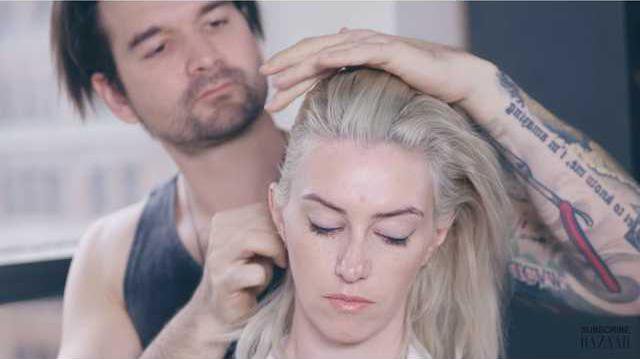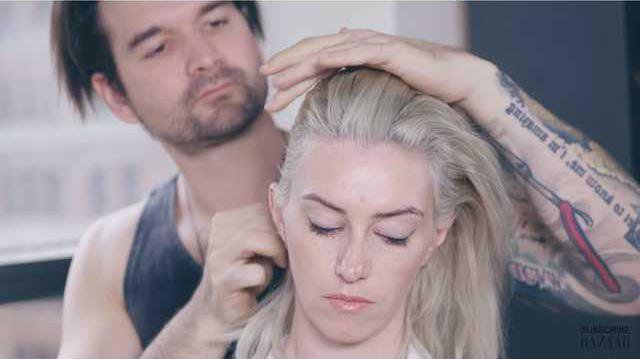NEW YORK CITY Theres just something special about having your hair played with.
Maybe its because it reminds me of being little and my mom running her fingers through my locks while I sat against the couch and watched that last TV show before bedtime. Maybe its because its synonymous with luxury, not having to do your own do and being doted upon.
One New York stylist decided to do his fiances hair every day for a year leading up to their wedding day as a way to spend more time together, and yeah, were all jealous.
To be able to spend more time with Laura, I wanted to set aside time every morning to do her hair, said Matt Fugate a stylist in New York City in a video released by Harpers Bazaar.
His fiance, Laura Gammel, is a communications director in the city and the two said they were just not finding as much time together as theyd like, so Fugate made it a goal to sit down daily with his wife-to-be and style her hair for 365 straight days.
Part of the process was testing out wedding hair styles, the final date of the experiment being the day of their nuptials.
I want to give her that moment, make it really special for her, Fugate said in the video.
The two met three months after Gammel moved to the city and needed someone to do her hair, according to the video, though Fugate was reluctant to cut the hair of a woman he was dating. It was another six months before he agreed to give her a trim, but now shes getting all the style she needs.
Watch the video, and let us know if this touched you the way it touched us!








